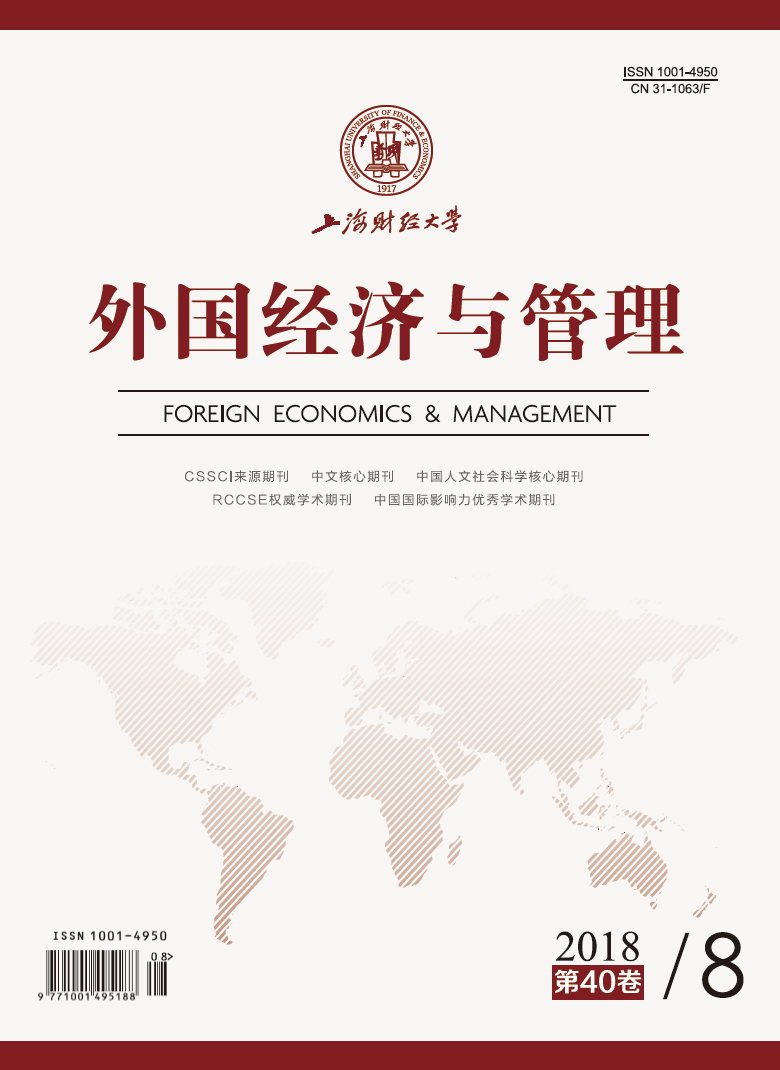类比推理主要指个体应用一个领域或场景中的知识来处理另一个领域或场景下的问题。类比推理作为管理判断的内在认知机制,对于理解不确定环境下的战略决策制定有重要意义。尽管近年涌现大量采用类比推理解释战略议题的研究,但未就类比推理的基本过程以及影响其决策效果的因素形成系统性的讨论。本文首先总结了应用类比推理制定不确定环境下战略决策的基本过程;其次,综合已有文献,讨论了映射算法、心智表征、源情境特征、启示特征以及搜寻方式等对类比推理决策效果有直接影响的五大过程因素,以及历史经验、外部信息、环境特征、主体特征四大外部因素如何作用于过程因素而对决策效果产生影响的;最后,从深化个体层类比推理过程、探索团队层/企业层类比推理机制发挥作用的过程、拓展影响决策效果的因素及相互作用这三个方面提出了类比推理研究可进一步拓展的议题。
不确定环境下的战略决策:类比推理的作用
摘要
参考文献
1 马骏, 席酉民, 曾宪聚. 战略的选择: 管理认知与经验搜索[J]. 科学学与科学技术管理, 2007, (11): 114–119. DOI:10.3969/j.issn.1002-0241.2007.11.023
2 Bingham C B, Eisenhardt K M. Rational heuristics: The " simple rules” that strategists learn from process experience[J]. Strategic Management Journal, 2011, 32(13): 1437–1464. DOI:10.1002/smj.965
3 Bingham C B, Kahl S J. The process of schema emergence: Assimilation, deconstruction, unitization and the plurality of analogies[J]. Academy of Management Journal, 2013, 56(1): 14–34. DOI:10.5465/amj.2010.0723
4 Cornelissen J P. Beyond compare: Metaphor in organization theory[J]. Academy of Management Review, 2005, 30(4): 751–764. DOI:10.5465/amr.2005.18378876
6 Dahl D W, Moreau P. The influence and value of analogical thinking during new product ideation[J]. Journal of Marketing Research, 2002, 39(1): 47–60. DOI:10.1509/jmkr.39.1.47.18930
7 Farjoun M. Strategy making, novelty and analogical reasoning—Commentary on Gavetti, Levinthal, and Rivkin (2005)[J]. Strategic Management Journal, 2008, 29(9): 1001–1016. DOI:10.1002/smj.v29:9
8 Gary M S, Wood R E. Mental models, decision rules, and performance heterogeneity[J]. Strategic Management Journal, 2011, 32(6): 569–594. DOI:10.1002/smj.v32.6
9 Gary M S, Wood R E, Pillinger T. Enhancing mental models, analogical transfer, and performance in strategic decision making[J]. Strategic Management Journal, 2012, 33(11): 1229–1246. DOI:10.1002/smj.v33.11
10 Gassmann O, Zeschky M. Opening up the solution space: The role of analogical thinking for breakthrough product innovation[J]. Creativity and Innovation Management, 2008, 17(2): 97–106. DOI:10.1111/j.1467-8691.2008.00475.x
11 Gavetti G, Greve H R, Levinthal D A, et al. The behavioral theory of the firm: Assessment and prospects[J]. Academy of Management Annals, 2012, 6(1): 1–40. DOI:10.5465/19416520.2012.656841
12 Gavetti G, Levinthal D. Looking forward and looking backward: Cognitive and experiential search[J]. Administrative Science Quarterly, 2000, 45(1): 113–137. DOI:10.2307/2666981
13 Gavetti G, Levinthal D A, Rivkin J W. Strategy making in novel and complex worlds: The power of analogy[J]. Strategic Management Journal, 2005, 26(8): 691–712. DOI:10.1002/(ISSN)1097-0266
15 Gavetti G, Rivkin J W. On the origin of strategy: Action and cognition over time[J]. Organization Science, 2007, 18(3): 420–439. DOI:10.1287/orsc.1070.0282
16 Gentner D. Structure-mapping: A theoretical framework for analogy[J]. Cognitive Science, 1983, 7(2): 155–170. DOI:10.1207/s15516709cog0702_3
17 Gentner D. Bootstrapping the mind: Analogical processes and symbol systems[J]. Cognitive Science, 2010, 34(5): 752–775. DOI:10.1111/cogs.2010.34.issue-5
18 Grégoire D A, Barr P S, Shepherd D A. Cognitive processes of opportunity recognition: The role of structural alignment[J]. Organization Science, 2010, 21(2): 413–431. DOI:10.1287/orsc.1090.0462
19 Helfat C E, Peteraf M A. Managerial cognitive capabilities and the microfoundations of dynamic capabilities[J]. Strategic Management Journal, 2015, 36(6): 831–850. DOI:10.1002/smj.2015.36.issue-6
20 Hoskisson R E, Hitt M A, Wan W P, et al. Theory and research in strategic management: Swings of a pendulum[J]. Journal of Management, 1999, 25(3): 417–456. DOI:10.1177/014920639902500307
21 Kaplan S. Framing contests: Strategy making under uncertainty[J]. Organization Science, 2008, 19(5): 729–752. DOI:10.1287/orsc.1070.0340
22 Ketokivi M, Mantere S, Cornelissen J. Reasoning by analogy and the progress of theory[J]. Academy of Management Review, 2017, 42(4): 637–658. DOI:10.5465/amr.2015.0322
23 Loock M, Hinnen G. Heuristics in organizations: A review and a research agenda[J]. Journal of Business Research, 2015, 68(9): 2027–2036. DOI:10.1016/j.jbusres.2015.02.016
24 Lovallo D, Clarke C, Camerer C. Robust analogizing and the outside view: Two empirical tests of case‐based decision making[J]. Strategic Management Journal, 2012, 33(5): 496–512. DOI:10.1002/smj.962
25 Maitland E, Sammartino A. Decision making and uncertainty: The role of heuristics and experience in assessing a politically hazardous environment[J]. Strategic Management Journal, 2015, 36(10): 1554–1578. DOI:10.1002/smj.2297
26 Markman A B, Gentner D. Structural alignment during similarity comparisons[J]. Cognitive Psychology, 1993, 25(4): 431–467. DOI:10.1006/cogp.1993.1011
27 Martins L L, Rindova V P, Greenbaum B E. Unlocking the hidden value of concepts: A cognitive approach to business model innovation[J]. Strategic Entrepreneurship Journal, 2015, 9(1): 99–117. DOI:10.1002/sej.v9.1
28 Miller K D, Lin S J. Analogical reasoning for diagnosing strategic issues in dynamic and complex environments[J]. Strategic Management Journal, 2015, 36(13): 2000–2020. DOI:10.1002/smj.2015.36.issue-13
29 Morgan G. Paradigms, metaphors, and puzzle solving in organization theory[J]. Administrative Science Quarterly, 1980, 25(4): 605–622. DOI:10.2307/2392283
30 Ocasio W. Towards an attention-based view of the firm[J]. Strategic Management Journal, 1997, 18(S1): 187–206. DOI:10.1002/(SICI)1097-0266(199707)18:1+<187::AID-SMJ936>3.3.CO;2-B
31 Powell T C, Lovallo D, Fox C R. Behavioral strategy[J]. Strategic Management Journal, 2011, 32(13): 1369–1386. DOI:10.1002/smj.968
引用本文
廖颖, 刘鹏, 席酉民. 不确定环境下的战略决策:类比推理的作用[J]. 外国经济与管理, 2018, 40(8): 17-29.
导出参考文献,格式为:
下一篇:营销领域的社会支持研究述评与展望





 , 1
, 1 7130
7130  8684
8684

